Thai MPs To Vote On Reforms, Day After Six Protesters Shot
Thai democracy protesters will return to the streets of Bangkok Wednesday, a day after six people were shot with live rounds in violent clashes, as lawmakers vote on possible constitutional reforms.
On Tuesday in the most violent confrontations seen since the pro-democracy movement kicked off in July, police used tear gas and water cannon on demonstrators, and protesters clashed with royalists near parliament.
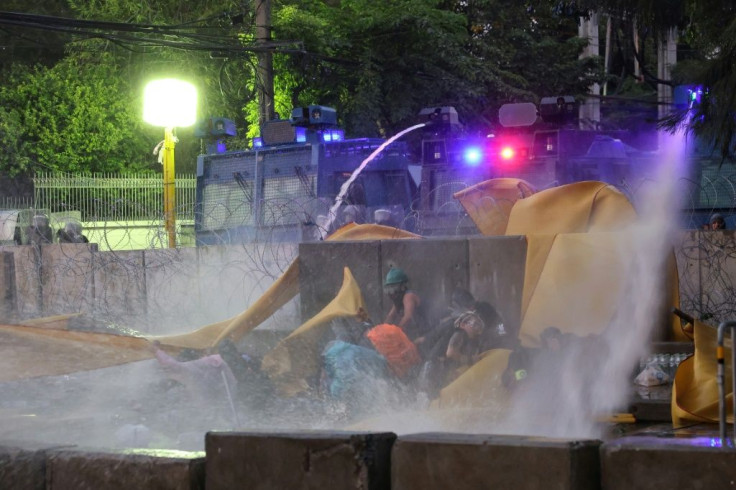
Prime Minister Prayut Chan-O-Cha has urged protesters to refrain from violence, but ruled out introducing another emergency decree -- like the one banning public gatherings of more than four people which spanned a week in October.
"No need. It affects the country stability and confidence. No-one will want to come or invest here because our confidence has been eroded," Prayut told reporters.
Some in the crowd were shot Tuesday night, but it was unclear who opened fire.
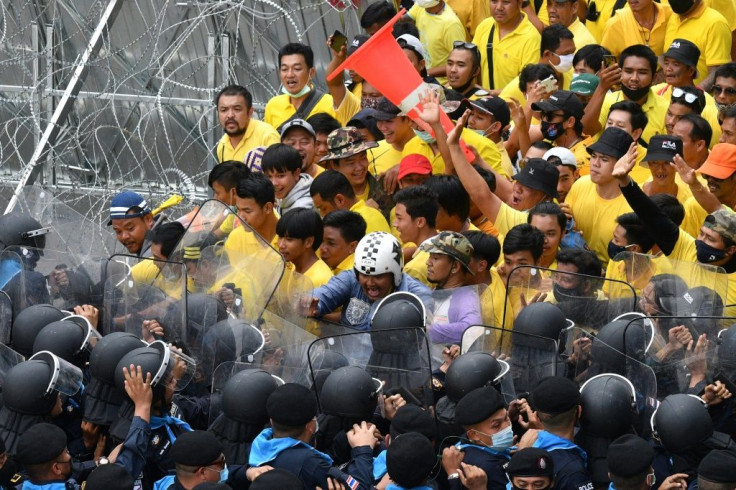
Bangkok police deputy commissioner Piya Tavichai said officers are investigating the shootings, which happened about 300 metres (yards) from the main protest zone.
He said one royalist supporter was shot in the hip and a pro-democracy protester in the leg.
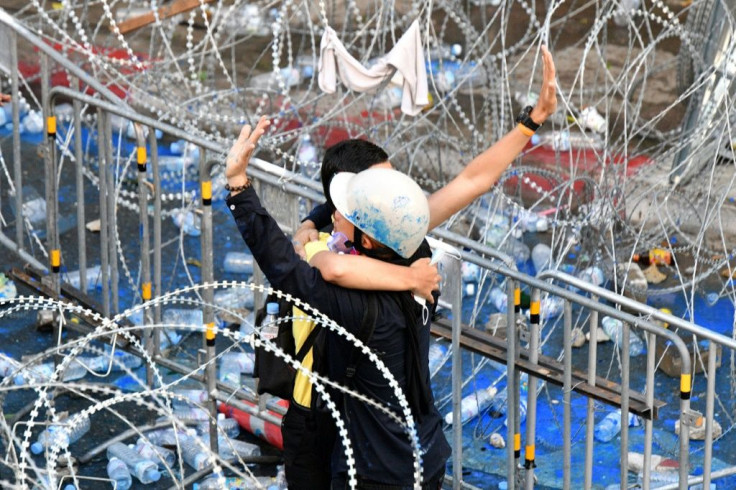
"The rest of shooting victims are still under investigation, but the fact was both sides were shot and wounded," he told reporters Wednesday.
Bangkok has been rocked since July by youth-led rallies demanding a constitutional overhaul and the removal of Prime Minister Prayut Chan-O-Cha, who took power in a 2014 coup.
Some in the movement have also called for reforms to the monarchy -- a once-taboo subject.
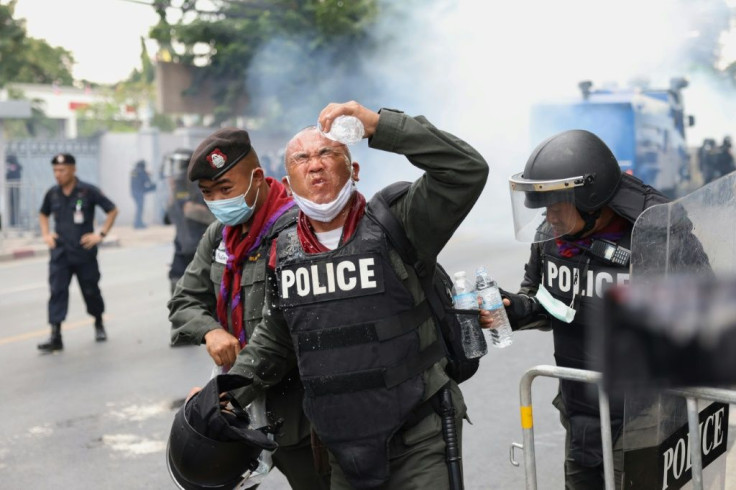
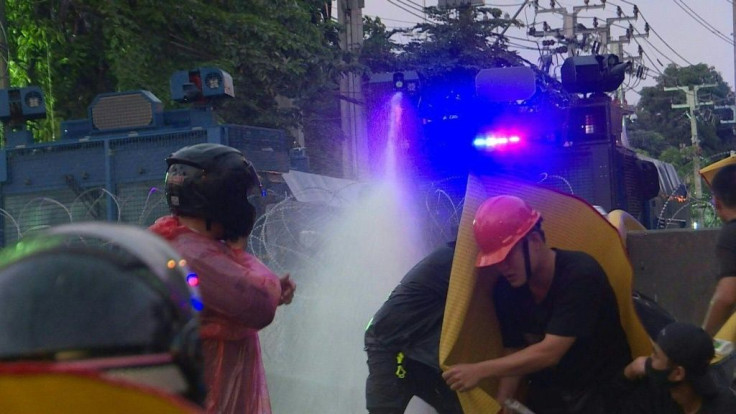
On Tuesday, as lawmakers debated possible changes to the military-scripted constitution, protesters ploughed through police barricades towards parliament, prompting the use of tear gas and water cannon.
More than 50 people were injured, mostly by tear gas, according to an ambulance and medical coordination service, which said six people were shot.
Police have denied officers used rubber bullets or live rounds.
The Thai Human Rights Lawyers Association slammed police tactics, saying they were "not in accordance with international procedure to disperse demonstrations".
Thai MPs have been discussing various proposals for constitutional change, which mostly exclude any reform to the monarchy.
One proposal seeks to replace the military-appointed Senate with directly elected representatives.
It was Senate support that allowed Prayut to hold on to power after last year's election.
Parliament began voting Wednesday on which amendments are to be debated further.
The vote is expected to take several hours and may not be finished by the time protesters regroup at a major intersection in Bangkok's shopping district of Ratchaprasong at 4:00 pm (0900 GMT).
"We will open a new era in our fighting," prominent student leader Parit "Penguin" Chiwarak told the crowd on Tuesday.
A heavy police presence is expected with several thousand officers deployed and four major intersections to be shut down.
A police headquarters is near the protest site and officers can be seen moving in water cannons and equipment to fortify the complex.
© Copyright AFP {{Year}}. All rights reserved.





















